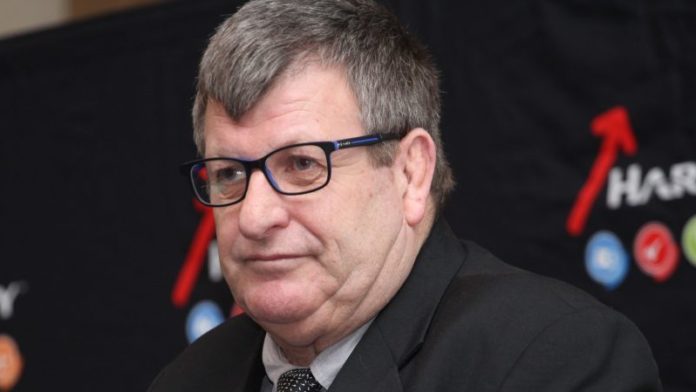
HARMONY Gold rolled forward its gold and currency hedging contracts and said it had not entered into new debt agreements as part of measures to protect its balance sheet during the five-week lockdown announced by the South African government.
In an update that noted “shareholder concern” regarding the impact of the COVID-19 pandemic, Harmony said that the improvement in the rand gold price had led to a 55% increase in its operating free cash flow margin for the March quarter compared to the previous December quarter.
In addition to the 11% increase in the average rand gold price, the company had also registered a 7% increase in recovered grade at its South African mines in the quarter. This helped offset an 8% decline in production as the March quarter tail showed some exposure to the first days of the lockdown.
Harmony said on March 31 that it anticipated production of no more than 700kg (24,700 ounces) during the 21-day period of the lockdown, equal to about 18% to 20% of average South African production for the month.
In its statement, Harmony said that it had been “… rolling forward a majority of our hedge transactions maturing from the middle of April 2020 up to the end of May 2020, into the first three quarters of the new financial year”. It added that this was done “… to better match the gold production”.
No mention was made regarding the upcoming June-end deadline for the $300m purchase of Mponeng mine from AngloGold Ashanti, a transaction that requires $200m in cash to complete. In rands, the deal is R780m more expensive today at a rand/dollar exchange of 18,77 than on February 11, the day of the deal announcement when the rand was 14.85 to the dollar.
Bank of America Merrill Lynch (BoAML) said in a report earlier this month that Harmony would not be able to finance the acquisition of Mponeng using its current facilities. Harmony responded in a Miningmx article saying that it was “committed” to the deal. BoAML also observed that 610,000 oz of Harmony gold production was hedged at below the spot price.
Other steps taken by Harmony in the light of the COVID-19 pandemic was to suspend exploration and major capital projects and declare a force majeure on “selected” supplier agreements. It had also drawn down on its rand and US dollar facilities “… to ensure sufficient liquidity during the lockdown and as we start up our underground operations,” it said.
The restart would take five working days to restart its underground mines by up to 50% of capacity in terms of Government’s amendments to regulations that govern economic activity during the lockdown. Peter Steenkamp, CEO of Harmony Gold, said the company was “grateful” it could start up its underground mines.
The start-up of mines is a logistically challenging task. Normally conducted at the beginning of each calendar year after seasonal holidays, the gradual recovery from the COVID-19 lockdown has been complicated by additional demands made by Government which include a requirement mining firms provide transportation to returning employees.
Harmony said that it was working within its own, and industry supplied, protocols and that it would allow its unions to conduct their respective audits.
Mining at Harmony’s Hidden Valley mine in Papua New Guinea has continued to operate during the COVID-19 State of Emergency declared in that country, the company said. The delivery of essential supplies to the mine have continued, with strict isolation control measures in place, it added.











